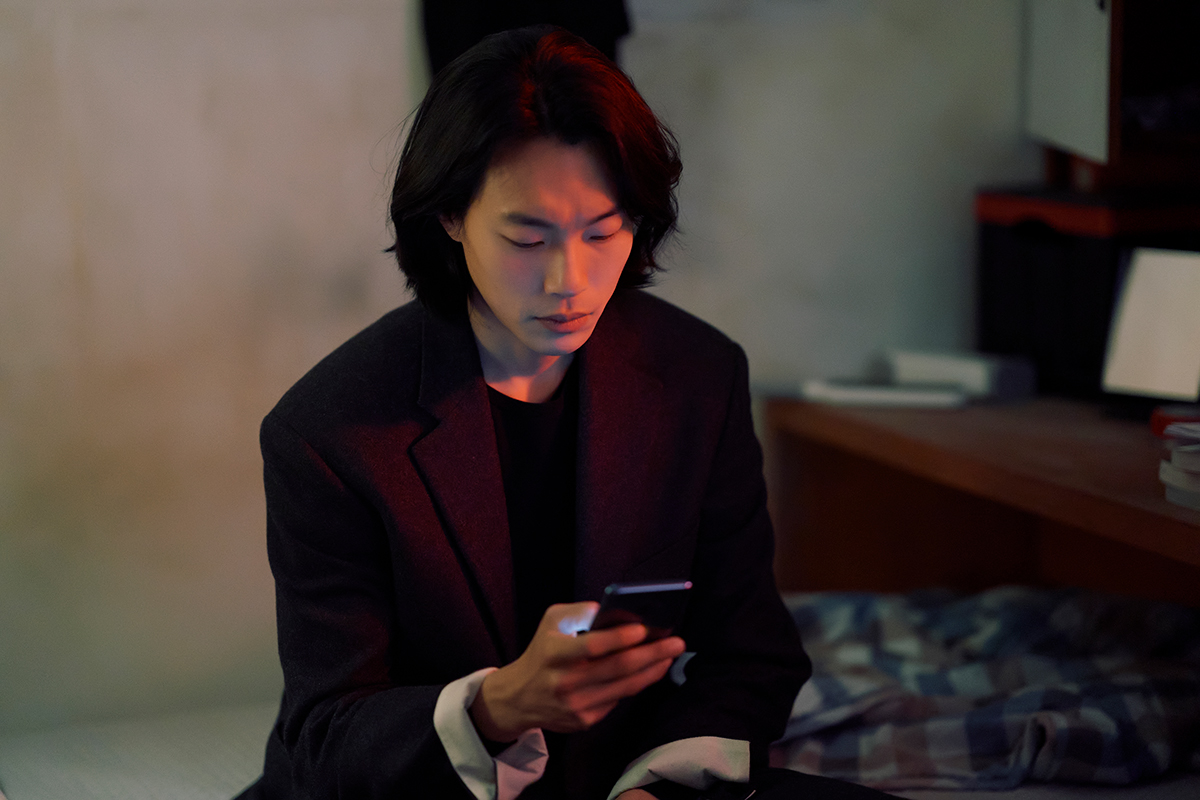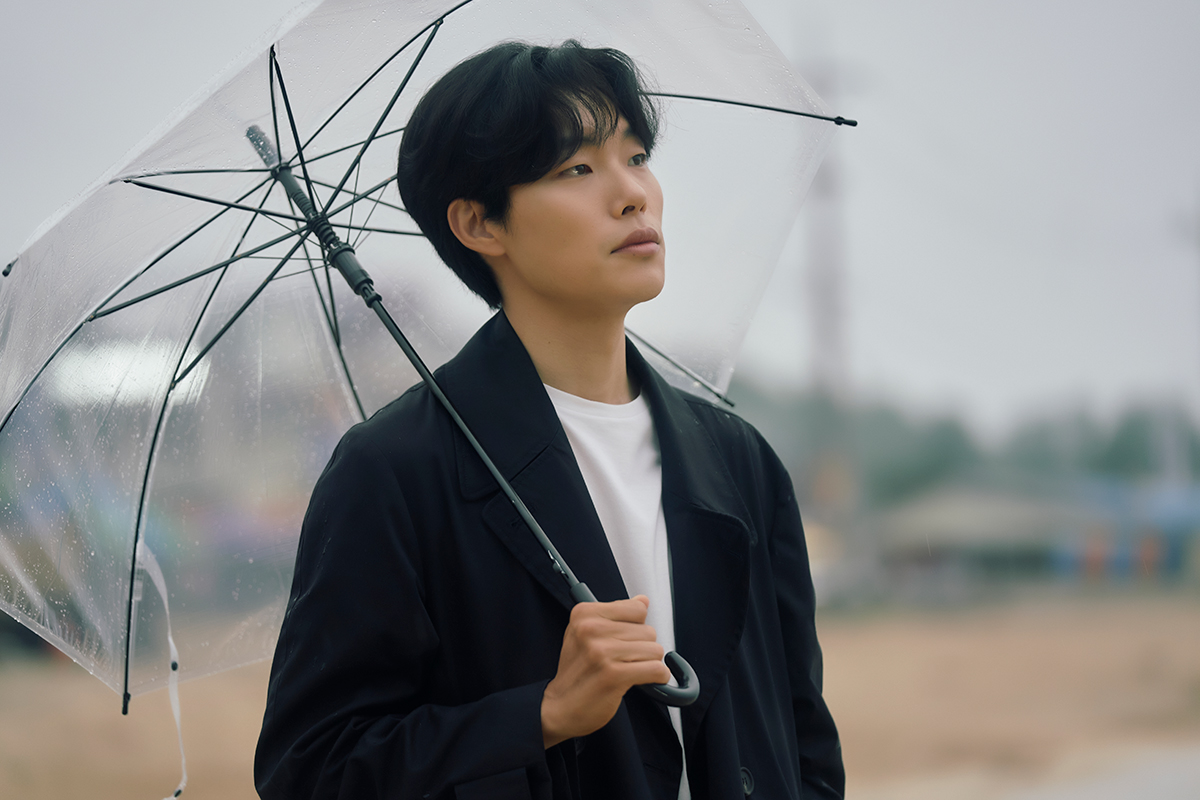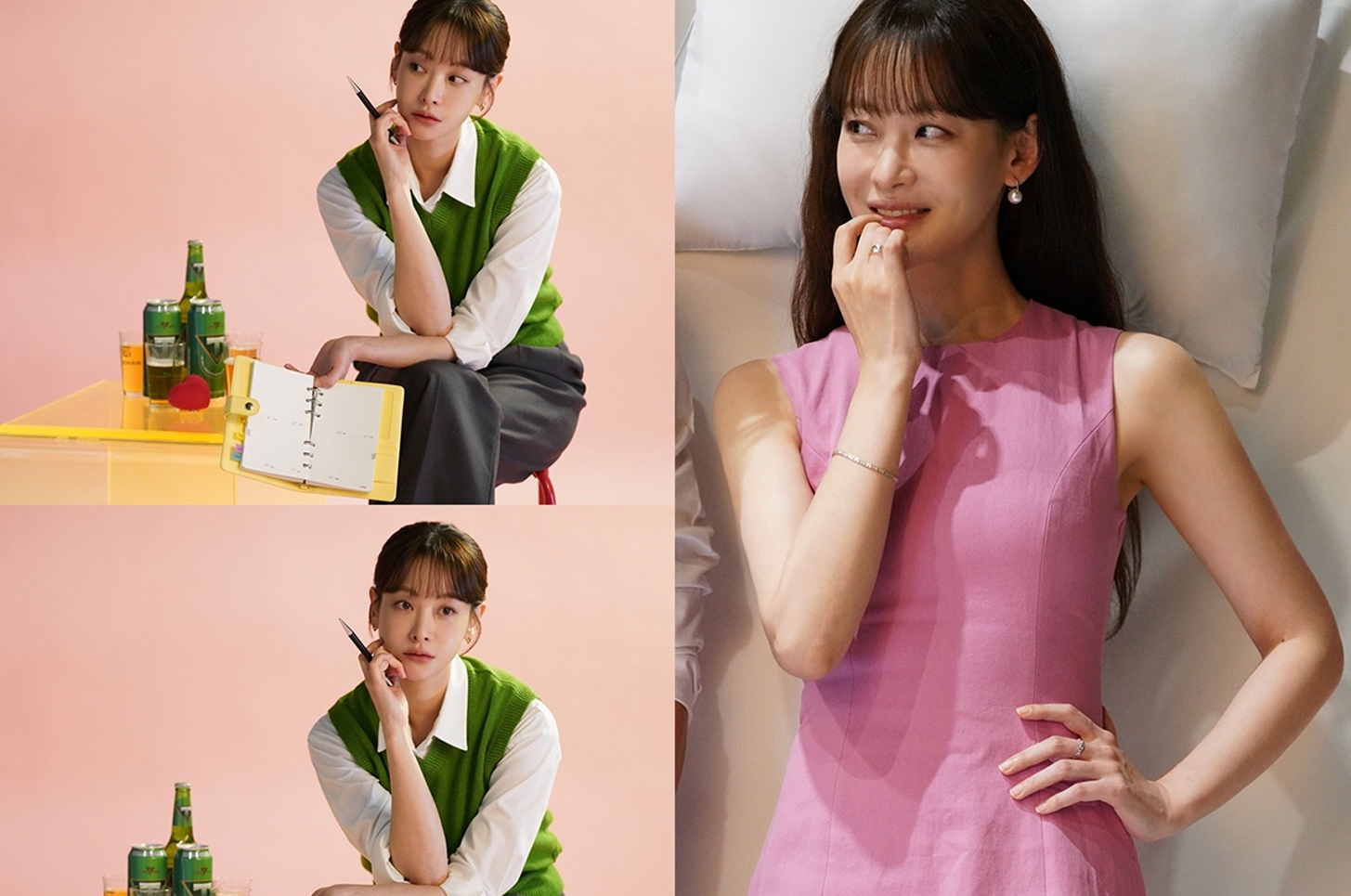“나 실패한 것 같아.” 조금 더 열심히 살았다면 성공할 수 있었을까. 부정(전도연)의 절망적인 토로와 함께 시작한 <인간실격>은 결국 아무것도 되지 못한 사람들의 이야기를 그리고 있다. 낡고 좁은 오피스텔 복도에서 부정과 강재(류준열)가 서로를 알아볼 수 있었던 것은 아마도 서로가 같은 삶을 살아가고 있음을 직감했다. 이 만남이 무언가 잘못되었다는 것을 알고 있지만 서로를 끝내 외면하지 못한 것은 실패한 인간을 이해할 수 있는 것은 실패한 인간이기 때문일 것이다.
<인간실격>은 삶의 밑바닥에서 마주친 부정과 강재의 이야기를 담고 있지만 드라마가 주목하는 것은 실패 이후의 삶이다. 자신의 청춘을 파는 강재와 자신의 재능을 팔았던 부정, 말하자면 사회에서 실격된 인간들의 시시콜콜한 이야기야말로 <인간실격>의 중심서사다. 누군가의 삶을 대신 완성시켜주던 대필작가와 누군가의 외로움을 대행하는 호스트의 만남과 같은 그저 그런 실패한 인생들이 드라마의 주된 내용을 이루고 있다. 부정과 강재뿐만 아니라 실패한 아이돌(손나은), 이혼한 응급구조사(양동근), 거짓으로 완성된 인기작가(박지영) 등 어른이지만 그 어떤 것도 이루지 못한 인간들이라는 점에서 <인간실격>은 낙오된 인생들의 전시에 가깝다.

돌이켜보면 허진호 감독의 영화에는 늘 자신이 실패했다고 믿는 나약함을 감추지 못하는 인물들이 등장했다. 이들은 스스로의 삶이 잘못되었다고 생각하지만 이를 설명하지 못하는 ‘아이’와 같은 사람들이다. 때문에 정원은 다림과 가족들에게 자신의 죽음을 설명하지 못하고(<8월의 크리스마스>), 상우가 은수에게 자신의 마음이 왜 변했는지를 설명하지 못하고(<봄날은 간다>), 인수와 서영은 끝내 진실을 받아들이지 못한다.(<외출>) 웃자란 아이들이 현실을 받아들이고 아픔을 수용하며 어른으로 성장해가는 과정은 허진호 영화의 변하지 않는 테마였다.
하지만 드라마 내내 독백을 되뇌이는 부정과 강재는 자신의 삶이 철저하게 실패했다는 것을 이미 알아버린 ‘어른’에 가까운 인물들이다. 누군가에게 닿을 수 없는 것을 알면서도 이들이 끊임없이 악플과 편지를 쓰는 것은 돌아갈 수 없는 과거를 회구하는 성장에 대한 트라우마적 반복에 가깝다. 그런 점에서 “당신이 나만큼 불행하기를 기도”하는 부정의 독백은 저주가 아닌 이미 어른이 되어버린 실패한 인간의 자학에 가까워진다. 문제는 이들의 고통이 현실로 되는 순간이 너무도 선명하다는 데 있다. 흔들리는 남편, 미성숙한 어머니, 죽음을 앞에 둔 아버지. 부정과 강재 뒤에 남겨진 가족들은 우리가 생각하는 안전지대와는 거리가 멀다. 실패 이후 되돌아갈 곳이 없는 낙오된 인간, 부정과 강재가 마주한 ‘어른’으로서의 삶은 허진호식 성장서사가 지금의 현실에서 마주친 가장 진솔한 풍경에 가깝다.
누구나 실패할 수 있다. 문제가 있다면 실패가 곧 인생의 패배로 치환되는 현실일 것이다. <미생>과 <송곳>을 통해 인간의 조건을 묻던 TV드라마가 이제 다시 던지는 질문은 아마도 다음과 같을 것이다. 결국 아무것도 되지 못한, 낙오된 인간의 자리는 존재하는가. 이 질문은 꽤 오래 지속될 것이다.

<사진 제공 - 씨제스 엔터테인먼트>
“When We Become Adults” <Lost> (JTBC, 2021)
Jeon Do-Yeon’s character, Bu-Jeong, deeply expresses with disparity “I’ve failed in life,” “If I’ve worked harder to live a better life, would I have become successful?” Her dialogue set the tone of “Lost,” a drama about the tales of people who have failed to make something of their lives. When Bu-Jeong and Kang-Jae (played by Ryu Jun-Yeol) met each other in the hall of the small and worn-out apartment, they were probably able to notice each other, because they’ve both had the cognition that their lives were similar. Though they’ve probably sensed that their relationship was going to go awry, they couldn’t simply ignore each other, because they understand each other’s miseries, knowing they were both miserable people.
Though <Lost> is a story about the lives of Bu-Jeong and Kang-Jae when they’ve met each other during their rock bottom, the drama emphasizes on their lives after their failures. Kang-Jae wastes away his youth, while Bu-Jeong wasted her skills. Simply put, the narration of <Lost> centers around the people who have failed in society, and the inquisitive stories about their lives. The storyline of the encounter between a ghostwriter who fulfills the lives of others, and a host that fulfills the loneliness of others, as well as ones who are living in failure is the main content of this drama. There are others besides Bu-Jeong and Kang-Jae. Min-Jung (Son Na-Eung), a former idol trainee Min-Jung (Son Na-Eun), Woo-Nam (Yang Dong-Geun), a divorced ER paramedic, Ah-Ran (Park Ji-Young), a best-selling author whose life has been built upon a lie, are all adults who have grown up to accomplish nothing in their lives. <Lost> is like an exhibit, a display of lives who are struggling to live in society.
If one were to analyze, director Hur Jin-Ho always had the tendency to portray timid characters who are struggling with their lives in his films. Though these characters know that something is wrong with their lives, they are like a “child,” who cannot figure out what their problem is. Thus, the reason why Jungwon couldn’t explain about the concept of death to Darim and the family in <Christmas in August, 1998>, Sangwoo couldn’t explain to Eunsu as to why why his feelings has changed in <One Fine Spring Day, 2001>, and Insu and Seoyoung couldn’t phantom what the truth was in <April Snow, 2005>. Director Hur Jin-Ho has been consistent with having the theme of having young innocent children, growing up and adjusting to the pains of reality for his films.
However, in the drama <Lost>, Bu-Jeong and Kang-Jae were characters who repeatedly shared monologues showing that they were “adults,” who acknowledged their failures. Knowing that they cannot reach anyone, their constant effort of writing hateful, malicious comments and letters was their repetitive way of processing and recollectioning the traumas from their irreversible past. In that aspect, Bu-Jeong’s monologue, “I pray that you’ll be just as miserable as I am,” is indeed not a curse, but a self-torment from an adult who has aged over the years. The problem lies in moments when their agony becomes reality with clear distinctiveness. Hesitant husband, immature mother, a father near the brink of his death. The families of both Bu-Jeong and Kang-Jae are far from living in security. Their lives after their failure leads them to a dead end, forcing them to live on as “adults,” to face the narrative of growth developed and landscaped by director Hur Jin-Ho, portraying the actual reality of what today’s world is like.
Failure can happen to anyone. The issue of failure is that it can soon become a reason for one’s defeat in life. TV Dramas such as <Misaeng: Incomplete Life>, and <Songgot: Awl>, questions the conditions for humanity, and are again asking, “Is there a place that exists for those who have failed to make something of their lives? Such questions will continue to be asked for a long period of time.











